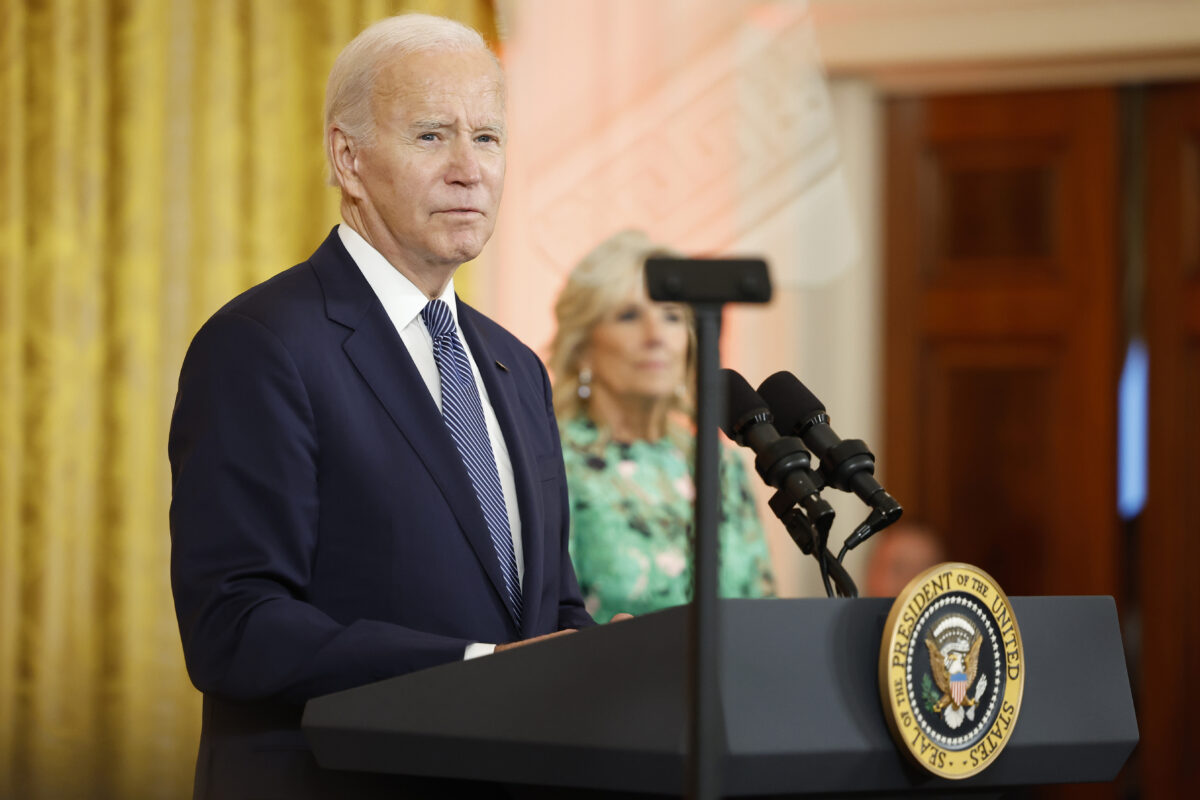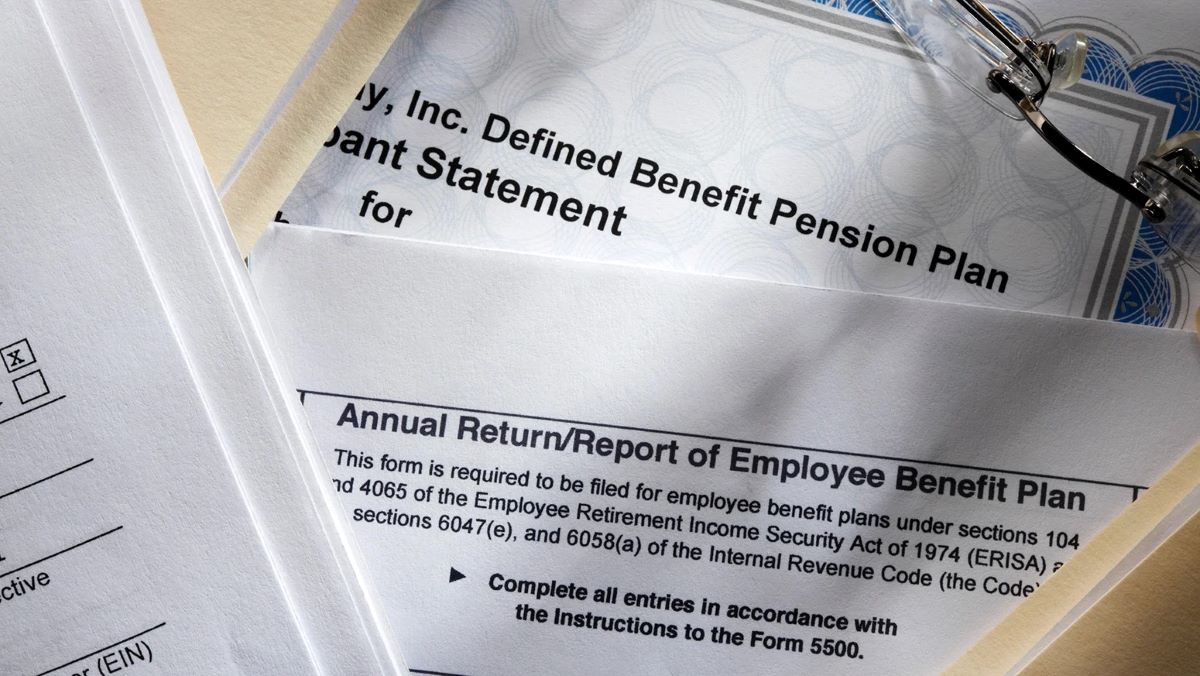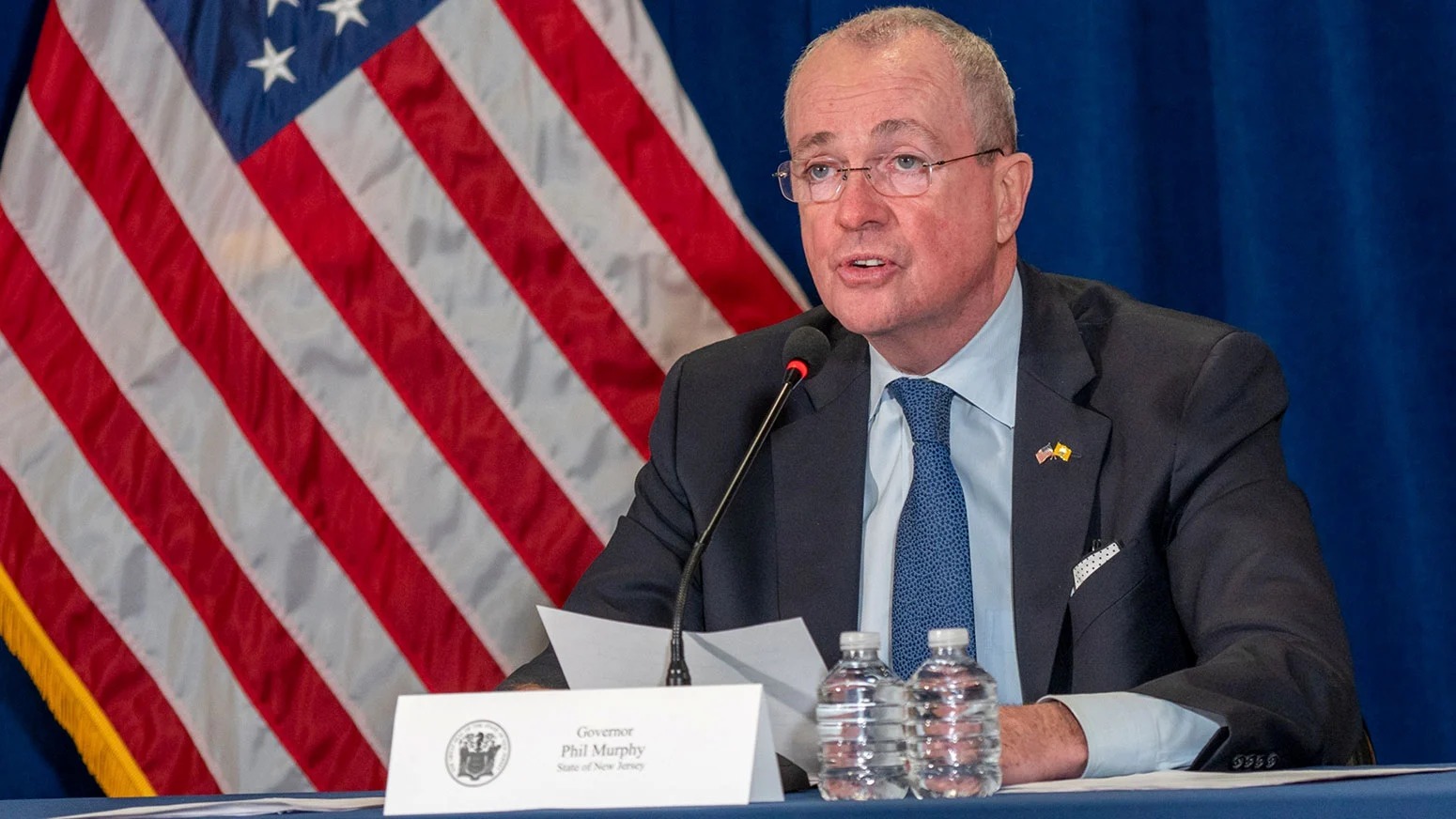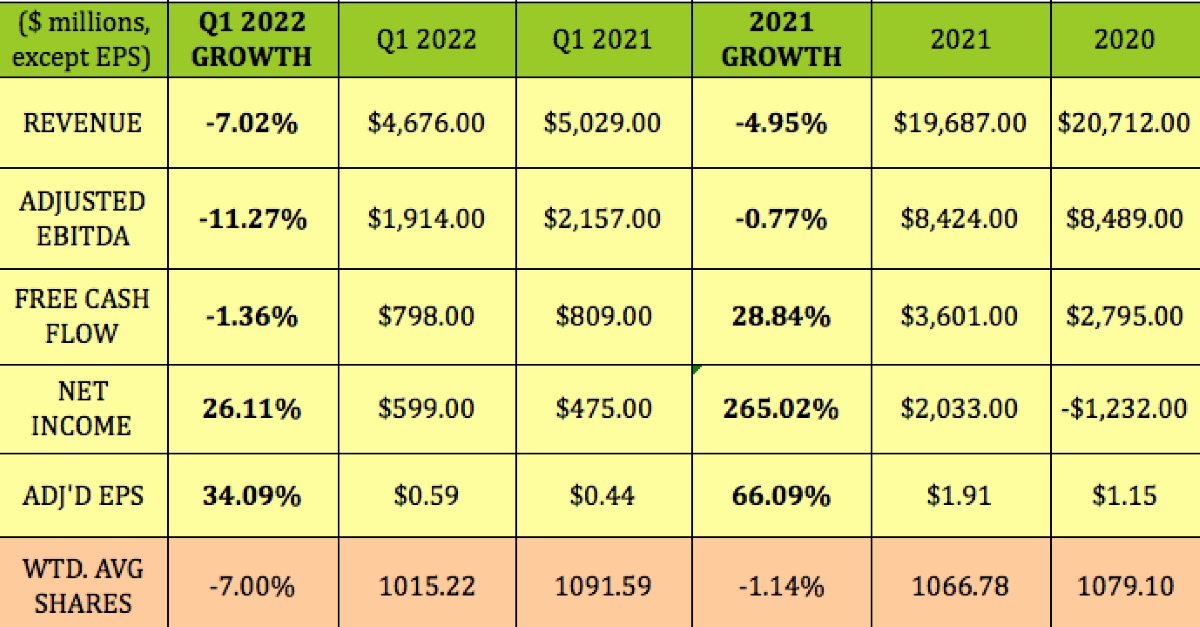Home>Finance>How Is Campaign Funding Regulated In State Elections?
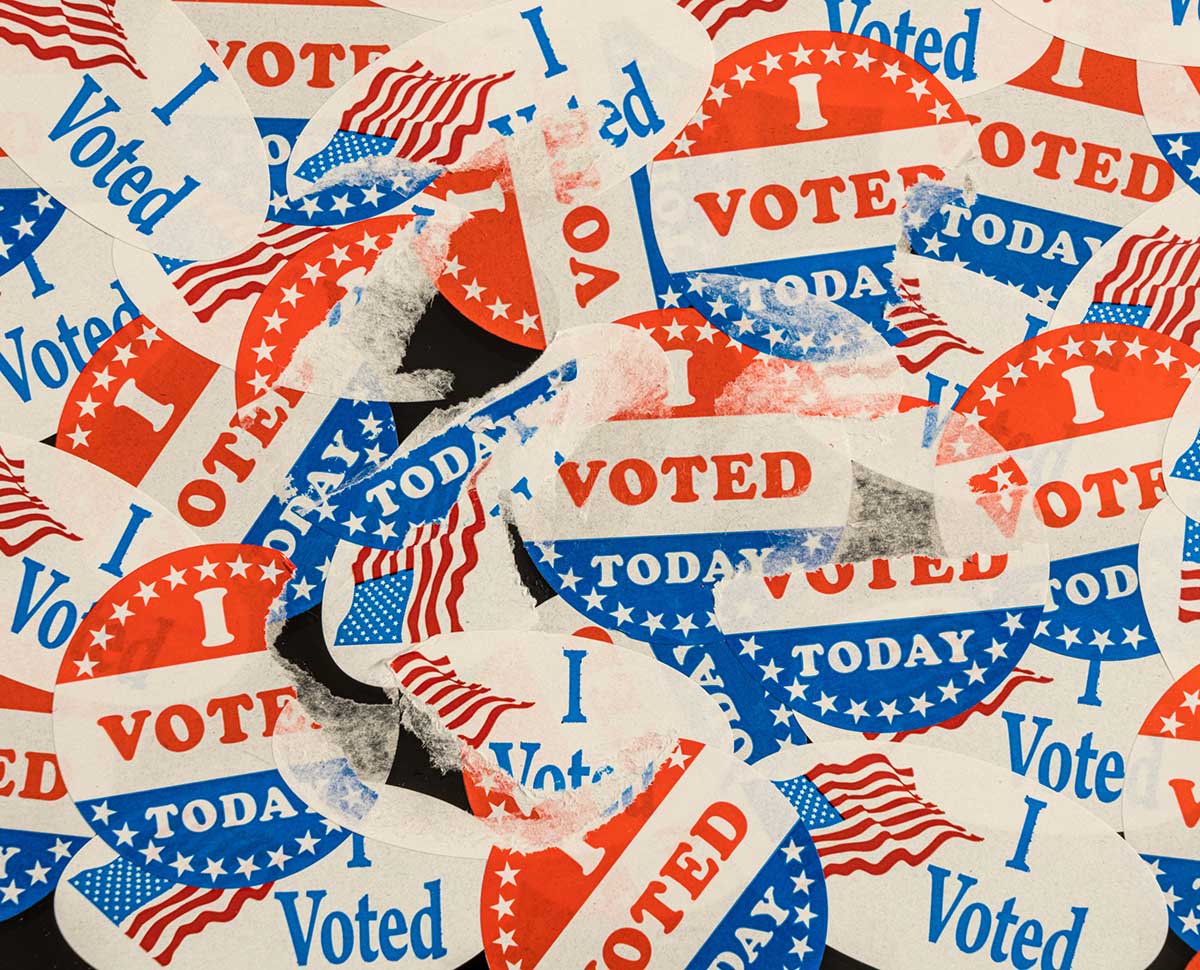

Finance
How Is Campaign Funding Regulated In State Elections?
Published: December 22, 2023
Discover how campaign funding is regulated in state elections and the role of finance in shaping the political landscape. Gain insights into funding laws, transparency requirements, and contribution limits.
(Many of the links in this article redirect to a specific reviewed product. Your purchase of these products through affiliate links helps to generate commission for LiveWell, at no extra cost. Learn more)
Table of Contents
- Introduction
- The Role of Campaign Funding in State Elections
- State Laws and Regulations on Campaign Funding
- Contribution Limits and Disclosure Requirements
- Public Financing Options for State Campaigns
- Enforcement and Oversight of Campaign Funding Regulations
- Case Studies of State Campaign Funding Regulations
- Criticisms and Challenges to Campaign Funding Regulations in State Elections
- Future Reforms and Trends in State Campaign Funding
- Conclusion
Introduction
Welcome to the world of state elections, where campaigns are waged, politicians are chosen, and policies are shaped. Behind every campaign lies the crucial element of campaign funding, which plays a pivotal role in determining the success or failure of candidates. The issue of campaign funding has gained significant attention in recent years, as concerns over the influence of money in politics have grown.
In state elections, campaign funding refers to the financial resources raised and expended by candidates and political parties to support their electoral campaigns. These funds are used for a multitude of purposes, including advertising, grassroots organizing, staff salaries, and travel expenses. The ability to raise substantial funds is often seen as a key indicator of a candidate’s viability and electability.
The role of campaign funding in state elections cannot be underestimated. It has the power to shape the electoral landscape by enabling candidates to effectively communicate their platforms and reach a wider audience. Additionally, funding can provide a competitive advantage to candidates, allowing them to outspend their opponents and gain an upper hand in the race.
However, the issue of campaign funding is not without its controversies and challenges. The influx of money, particularly from wealthy individuals and interest groups, has raised concerns about the potential for undue influence and the distortion of democratic processes. Additionally, the lack of transparency and accountability in campaign financing has further fueled public skepticism and mistrust.
In response to these concerns, state governments have implemented various laws and regulations to govern and oversee campaign funding in state elections. The aim is to ensure fairness, integrity, and transparency in the electoral process. These regulations encompass contribution limits, disclosure requirements, public financing options, and the enforcement of campaign funding rules.
Throughout this article, we will explore how campaign funding is regulated in state elections. We will delve into the role and importance of campaign funding, examine the laws and regulations that govern it, and discuss the challenges and criticisms that arise in this complex landscape. So, let’s embark on this journey to understand the intricacies of campaign funding in state elections.
The Role of Campaign Funding in State Elections
Campaign funding is a critical factor that significantly influences the outcome of state elections. It directly impacts a candidate’s ability to effectively communicate their message, mobilize supporters, and compete with other candidates in a crowded political landscape.
One of the primary roles of campaign funding is to help candidates raise their profile and increase their visibility among voters. Funds are used to develop advertising campaigns, including television and radio commercials, digital advertisements, and billboards, to reach a wide audience and create name recognition. These advertisements allow candidates to convey their policy proposals, highlight their experience and qualifications, and differentiate themselves from their opponents.
In addition to advertising, campaign funds are used to establish a strong ground game. This involves hiring campaign staff, opening field offices, and deploying volunteers and organizers to conduct outreach efforts such as door-to-door canvassing, phone banking, and holding campaign events. These grassroots activities help candidates build personal connections with voters, garner support, and mobilize their base.
Campaign funding also plays a pivotal role in candidate viability and competitiveness. Adequate financial resources are required to establish a credible campaign infrastructure, including hiring experienced consultants, pollsters, and strategists who provide valuable insights and guidance. Candidates with limited funds may struggle to effectively convey their message and appeal to a broad electorate, thereby putting them at a disadvantage against well-funded opponents.
Furthermore, in tightly contested races, campaign funding can determine the outcome of an election. Increased funding allows candidates to mount an aggressive campaign, saturating the airwaves with advertisements, organizing more events, and engaging in intensive voter outreach. Candidates who can raise substantial funds have a greater chance of securing endorsements from influential organizations and individuals, which can further boost their credibility and appeal to voters.
However, the role of campaign funding in state elections is not without controversy. Critics argue that the influx of money in politics can create an uneven playing field, where candidates with deep-pocketed donors or personal wealth have a significant advantage over those who rely on grassroots fundraising. This imbalance can undermine the democratic principle of equal representation and potentially marginalize voices from underrepresented communities.
Additionally, concerns have been raised about the influence of special interest groups and wealthy donors on policymaking. Critics argue that large campaign contributions can lead to undue influence over elected officials, potentially skewing their decision-making process and compromising the integrity of democratic governance.
State Laws and Regulations on Campaign Funding
State governments have enacted a range of laws and regulations to govern and regulate campaign funding in state elections. These regulations aim to promote transparency, prevent corruption, and reduce the influence of money in politics.
One common aspect of campaign funding regulations is the establishment of contribution limits. These limits restrict the amount of money an individual or organization can contribute to a candidate or political committee. Contribution limits vary from state to state, with some states imposing strict caps on donations, while others have higher thresholds. The purpose of contribution limits is to prevent undue influence by curbing the ability of wealthy individuals or special interest groups to make excessive donations and potentially sway the outcome of an election.
Another key component of campaign funding regulations is disclosure requirements. Candidates and political committees are required to disclose information about their campaign donations and expenditures, ensuring transparency and accountability in the electoral process. Disclosure reports typically include details such as the name, occupation, and address of donors, the amount contributed, and how the funds were spent. These reports are made available to the public, allowing voters to evaluate the financial support received by candidates and identify any potential conflicts of interest.
Additionally, some states have implemented public financing options for state campaigns. Public financing programs provide a set amount of funds to qualifying candidates who agree to certain spending and fundraising restrictions. These programs are designed to level the playing field and encourage candidates to focus more on issues and less on fundraising, thereby reducing the influence of money in politics. Public financing programs are funded through a variety of sources, including taxpayer dollars, voluntary check-offs on tax forms, or a combination of both.
Enforcement and oversight of campaign funding regulations are vital to ensuring compliance and preventing corruption. State agencies, such as election commissions or ethics committees, are responsible for monitoring, investigating, and enforcing campaign finance laws. They conduct audits, review disclosure reports, and investigate potential violations. Violations can result in fines, penalties, or even criminal charges, depending on the severity of the offense.
It is important to note that campaign funding regulations can vary significantly from state to state. While some states have comprehensive laws in place to regulate campaign funding, others have more relaxed rules or limited enforcement mechanisms. The level of regulation often depends on the political climate and the priority placed on campaign finance reform by state legislatures.
In the next section, we will explore the specific contribution limits and disclosure requirements in different states, as well as the public financing options available for state campaigns.
Contribution Limits and Disclosure Requirements
Contribution limits and disclosure requirements are important components of campaign funding regulations that aim to promote transparency, prevent corruption, and ensure a level playing field in state elections.
Contribution limits restrict the amount of money individuals, organizations, or political action committees (PACs) can contribute to candidates or political committees. These limits vary from state to state and can apply to various types of contributions, including individual donations, PAC contributions, and party contributions. The purpose of contribution limits is to prevent the domination of campaigns by wealthy donors or special interest groups, and to avoid potential conflicts of interest for candidates who receive large donations.
States determine their own contribution limits, and these limits can vary significantly. For example, some states may impose a fixed dollar amount as a limit, while others may set limits based on a percentage of the candidate’s campaign expenditures or the state’s median income. Some states also differentiate between primary and general elections, allowing higher contribution limits during general election cycles.
In addition to contribution limits, disclosure requirements play a crucial role in ensuring transparency and accountability in campaign funding. Candidates and political committees are typically required to disclose information about their campaign donations and expenditures. This includes details such as the name, occupation, and address of donors, the amount contributed, and how the funds were spent.
The level of disclosure can vary from state to state, but the overarching aim is to provide the public with the necessary information to evaluate the financial support received by candidates and potential conflicts of interest that may arise. Some states require regular and detailed reporting throughout the campaign cycle, while others may only require periodic reporting or reporting at specific milestones, such as before primary and general elections.
Most states have established central agencies responsible for overseeing campaign finance disclosure. These agencies collect and compile the disclosure reports, make them publicly available, and may also conduct audits to ensure compliance. The information disclosed by candidates and political committees is crucial for voters, journalists, and advocacy groups to understand the financial backing behind each campaign and to hold candidates accountable for their funding sources.
It is important to note that while contribution limits and disclosure requirements help promote transparency and accountability, there are also challenges in implementing and enforcing these regulations. Some wealthy individuals or interest groups may seek to circumvent contribution limits through various legal loopholes or by leveraging multiple entities to make donations. Additionally, ensuring compliance with disclosure requirements can be challenging, as candidates and committees may inadvertently or purposefully omit or misreport certain information.
In the next section, we will explore the options for public financing of state campaigns, which can provide alternative funding sources and further reduce the influence of money in politics.
Public Financing Options for State Campaigns
In an effort to reduce the influence of private funding and level the playing field for candidates, some states have implemented public financing options for state campaigns. Public financing provides candidates with public funds to support their campaigns, typically in exchange for agreeing to certain spending and fundraising restrictions.
The goal of public financing is to encourage candidates to rely on public funds rather than relying solely on private donations, which can be seen as potentially influencing the decision-making process of elected officials. By offering public financing, states aim to promote fair and competitive elections, enhance the representation of diverse candidates, and reduce the impact of money in politics.
Public financing programs vary from state to state, but they generally follow a similar framework. Candidates must first meet specific eligibility criteria, which often include gathering a certain number of small-dollar donations or meeting a threshold of public support. Once qualified, candidates receive a fixed amount of public funds to support their campaign.
These public funds are typically provided through various sources. Some states allocate funds from general tax revenues or specific funding mechanisms, while others allow individuals to voluntarily contribute to a designated fund on their tax forms, commonly known as a check-off system. Some states may also combine these funding sources, using both taxpayer dollars and voluntary contributions.
In exchange for receiving public funds, candidates must adhere to strict spending limits and fundraising restrictions. These limits are designed to prevent excessive spending and ensure that public funds are used responsibly. Candidates may also be required to return any unused funds to the public financing program to avoid personal gain from the campaign.
While public financing can provide a viable alternative to private funding, it does come with its challenges. One significant challenge is the availability of funds. Public financing programs rely on a sufficient pool of funding, whether from taxpayer dollars or voluntary contributions, in order to support participating candidates. If funds are limited, it may impact the number of candidates who can take advantage of the program or the amount of funding available to each candidate.
Another challenge lies in the eligibility requirements for public financing. Some candidates may find it difficult to meet the criteria, especially those running as independent or third-party candidates who may face greater hurdles in gathering public support or small-dollar donations. These eligibility criteria can potentially hinder the participation of a diverse range of candidates.
Despite these challenges, public financing remains an influential tool in reducing the impact of money in politics and promoting more accessible and competitive state elections. It allows candidates who may not have access to extensive private funding networks to run viable campaigns and fosters a political environment where candidates can focus on issues and public service rather than fundraising.
In the next section, we will explore the enforcement and oversight of campaign funding regulations to ensure compliance and maintain the integrity of state elections.
Enforcement and Oversight of Campaign Funding Regulations
Enforcement and oversight of campaign funding regulations play a vital role in maintaining the integrity of state elections and ensuring compliance with established laws and regulations. State agencies and entities are responsible for monitoring, investigating, and enforcing campaign finance rules to prevent corruption and maintain transparency in the electoral process.
State-level enforcement agencies, such as election commissions, ethics committees, or campaign finance boards, are typically tasked with overseeing campaign funding regulations. These agencies have the authority to audit campaign finance reports, investigate potential violations, and impose penalties or fines for non-compliance. They serve as a watchdog, ensuring that all candidates and political committees adhere to the established rules.
One of the key responsibilities of these enforcement agencies is to review and analyze campaign finance disclosure reports. Candidates and political committees are required to submit regular reports detailing their campaign contributions and expenditures. By conducting thorough and systematic reviews of these reports, enforcement agencies can identify any irregularities, discrepancies, or potential violations.
If a violation is suspected, enforcement agencies can initiate investigations to gather evidence and determine the extent of the violation. This may involve subpoenaing records, interviewing witnesses, and analyzing financial information. The agencies have the authority to impose fines or penalties on violators, depending on the severity of the offense.
Penalties for violations of campaign funding regulations can vary from state to state. Common sanctions include monetary fines, repayment of improperly used funds, and potentially even criminal charges for serious infractions. The severity of the violation, the intent behind the violation, and the candidate or committee’s compliance history are factors considered when determining appropriate penalties.
Public transparency and accountability also contribute to the enforcement and oversight process. By making campaign finance reports available to the public, citizens, journalists, and advocacy groups can independently analyze the financial activities of candidates and identify potential violations or questionable practices. This external scrutiny helps to expose illegal or unethical behavior, ultimately ensuring that the electoral process remains fair and free from undue influence.
In addition to enforcement agencies, the judicial system also plays a role in addressing campaign finance violations. In some cases, individuals or groups may file lawsuits against candidates or committees for alleged campaign finance violations. The courts can provide a venue for grievances to be heard and can impose legal remedies, including injunctions or other sanctions.
While enforcement and oversight of campaign funding regulations are crucial, it is important to acknowledge that challenges exist in effectively enforcing these rules. Limited resources, complex legal frameworks, and the ever-evolving nature of campaign financing can pose obstacles to comprehensive and efficient enforcement. Some critics argue that enforcement agencies may be understaffed or inadequately funded, which may hamper their ability to effectively monitor and enforce compliance.
In the next section, we will examine case studies of campaign funding regulations in specific states to provide a deeper understanding of the practical implementation and impact of these regulations.
Case Studies of State Campaign Funding Regulations
Examining case studies of state campaign funding regulations can provide valuable insights into the practical implementation and impact of these regulations. Let’s explore a few examples to understand how different states approach campaign financing and the outcome of their regulatory efforts.
1. California: California has implemented strict campaign funding regulations, including contribution limits and disclosure requirements. The state also offers a public financing program known as the California Fair Political Practices Commission (FPPC) for qualifying candidates. Candidates who participate in the program receive public funds based on the number of small-dollar donations they gather. The FPPC closely monitors and enforces compliance with campaign funding regulations, and their efforts have resulted in increased transparency and accountability in California’s political landscape.
2. Connecticut: Connecticut is recognized as a pioneer in campaign financing reform. The state introduced the Citizens’ Election Program (CEP), which provides full public financing for qualified candidates who meet specific criteria, such as collecting a minimum number of small-dollar contributions. The CEP has been successful in reducing the influence of private money in elections and promoting more competitive races. Candidates who participate in the CEP are subject to strict spending limits and disclosure requirements, ensuring transparency and fairness in campaign financing.
3. West Virginia: West Virginia implemented a unique campaign financing regulation known as the Clean Election Act. This Act provides public financing for participating candidates in the form of grants, allowing them to run their campaigns without relying on private donations. The Act also includes expenditure limits to ensure fairness and restrict excessive spending. While the Clean Election Act faced legal challenges and temporary suspension, it remains an important example of a state’s efforts to reduce the influence of private funding and promote clean and fair elections.
4. Maine: Maine is known for its long-standing public financing program called the Maine Clean Election Act. This program provides public funds to qualifying candidates who agree to fundraising and spending restrictions. Candidates must collect a specified number of small-dollar contributions in their district to be eligible. The Maine Clean Election Act has been successful in increasing the number of candidates participating in the public financing system, thereby allowing for more diverse and competitive elections.
These case studies highlight the various approaches states have taken to regulate campaign financing and reduce the influence of private funding in elections. While the specific details and outcomes may differ, the underlying goal remains the same: to promote fairness, transparency, and accountability in the electoral process.
In the next section, we will discuss some of the criticisms and challenges that arise in the context of campaign funding regulations in state elections.
Criticisms and Challenges to Campaign Funding Regulations in State Elections
While campaign funding regulations in state elections aim to promote fairness and transparency, they are not without criticism and face several challenges. These criticisms and challenges stem from various perspectives and can impact the effectiveness and legitimacy of these regulations.
1. First Amendment Concerns: Some critics argue that campaign funding regulations infringe on the First Amendment rights of individuals and groups to freely express their support for political candidates. They believe that contribution limits and spending restrictions hinder free speech and impede the democratic process by limiting the ability of candidates and supporters to effectively communicate their ideas and engage in robust political discourse.
2. Loopholes and Evading Restrictions: Critics contend that despite the existence of contribution limits and disclosure requirements, wealthy individuals, corporations, and interest groups can exploit loopholes to exert undue influence and funnel money into campaigns indirectly. They argue that contributors can hide their identity or use various entities to circumvent campaign funding regulations, making it challenging to truly ensure transparency and accountability.
3. Inequality and Incumbent Advantage: Some argue that campaign funding regulations, such as contribution limits and public financing options, inadvertently contribute to unequal opportunities for candidates. Incumbents or well-established political figures may have an advantage due to their pre-existing networks, name recognition, and fundraising abilities. New or lesser-known candidates, especially those without access to personal wealth or influential networks, may struggle to compete effectively, leading to a perpetuation of the status quo.
4. Compliance and Enforcement Challenges: Enforcing campaign funding regulations can be complex and resource-intensive. Critics argue that enforcement agencies may lack the necessary resources or expertise to effectively monitor and enforce compliance. Additionally, investigating potential violations can be time-consuming and challenging, as candidates or committees may deliberately conceal or misreport information in their campaign finance reports. Limited penalties or fines for non-compliance may also hinder the effectiveness of enforcement efforts.
5. Unintended Consequences: Campaign funding regulations may have unintended consequences that can impact the electoral landscape. For example, stricter regulations may lead to the rise of “dark money” or undisclosed contributions, as donors seek to bypass disclosure requirements. Additionally, public financing programs may face challenges related to funding availability or eligibility criteria, potentially limiting the number of candidates who can participate and reducing the diversity of voices in the political arena.
It is important to identify and address these criticisms and challenges to ensure the continued effectiveness and legitimacy of campaign funding regulations. Ongoing discussions, evaluations, and potential reforms can help refine these regulations and strike a balance between promoting fair and transparent elections while safeguarding fundamental rights and addressing practical concerns.
In the next section, we will discuss future trends and potential reforms in campaign funding regulations in state elections.
Future Reforms and Trends in State Campaign Funding
The realm of campaign funding regulations in state elections is constantly evolving, driven by ongoing discussions, public scrutiny, and attempts to address the challenges and criticisms that arise. Several future reforms and emerging trends are shaping the landscape of campaign financing in states.
1. Stricter Contribution Limits: As concerns about the influence of money in politics continue to grow, there may be a push for even stricter contribution limits in state campaigns. Some reform advocates argue for lower limits to curb the potential for undue influence and level the playing field for candidates. Stricter contribution limits could be accompanied by enhanced oversight and enforcement mechanisms to prevent circumvention of these limits.
2. Increased Transparency and Disclosure: A growing trend in campaign funding regulations is the demand for greater transparency and disclosure. Reforms may focus on strengthening disclosure requirements, making them more comprehensive and accessible to the public. This could include disclosing more detailed information about the sources of campaign contributions, including connections to corporations or other entities, to provide voters with a clearer understanding of potential conflicts of interest.
3. Enhancing Enforcement and Oversight: To address the compliance and enforcement challenges of campaign funding regulations, future reforms may concentrate on improving the capacity and resources of enforcement agencies. This could involve providing additional funding, increasing staffing levels, and promoting collaboration between agencies to enhance monitoring and enforcement efforts. Utilizing advanced technology and data analytics may also play a role in identifying potential violations and streamlining investigations.
4. Expanding Public Financing Programs: There may be a continued push to expand public financing programs in states to further reduce the influence of private funding. Reforms could include increasing the funding available for public financing programs, simplifying eligibility criteria, and providing additional support to candidates who participate in these programs. Expanding public financing options could enhance the diversity of candidates who can run viable campaigns and further reduce the perceived influence of money in politics.
5. Bolstering Small-Dollar Donations: To counter the dominance of large donors, future reforms may focus on incentivizing and promoting small-dollar donations from a broader base of supporters. This can be done through matching funds programs, where public funds supplement small donations to amplify their impact. Such reforms aim to empower grassroots fundraising and reduce the reliance on a small number of wealthy contributors.
6. Exploring New Financing Models: The landscape of campaign financing is also witnessing experimentation with alternative funding models. Some states are exploring options like participating in pilot programs for limited public vouchers, where voters receive vouchers to allocate to candidates of their choice. These vouchers would be funded through public resources and assist in amplifying the influence of individual voters in campaign financing.
As these reforms and trends continue to shape the future of campaign funding regulations, it is important to strike a balance between promoting equitable representation and preserving the democratic principles of free speech and political participation. Ongoing dialogue, collaboration, and evaluation of the impact of these reforms will be essential in shaping a system that fosters fair and transparent state elections.
In the final section, we will offer a concluding summary of campaign funding regulations in state elections.
Conclusion
Campaign funding regulations play a critical role in shaping the landscape of state elections. They are designed to promote transparency, prevent corruption, and reduce the influence of money in politics. Through contribution limits, disclosure requirements, public financing options, and enforcement mechanisms, these regulations aim to ensure a fair and level playing field for candidates and foster public trust in the electoral process.
While campaign funding regulations are essential, they are not without challenges and criticisms. Concerns about potential infringements on First Amendment rights, loopholes that enable the circumvention of regulations, and the unequal advantages faced by incumbents are among the issues that warrant ongoing scrutiny and evaluation.
Looking towards the future, there are notable reforms and trends emerging in campaign funding regulations. Stricter contribution limits, increased transparency and disclosure, enhanced enforcement and oversight, expanded public financing programs, and the exploration of new financing models are all shaping the direction of campaign funding regulations in state elections.
The effectiveness of campaign funding regulations relies on striking the delicate balance between promoting fair and transparent elections while respecting free speech rights and addressing compliance challenges. Ongoing discussions, evaluations, and potential reforms are crucial in strengthening these regulations and maintaining their integrity.
Ultimately, campaign funding regulations in state elections have the potential to level the playing field, empower grassroots candidates, and enhance the representation of diverse voices. By continuing to refine and adapt these regulations, we can foster a political environment that values integrity, accountability, and the democratic ideal of a government of the people, by the people, and for the people.
As citizens, voters, and elected officials, it is our collective responsibility to advocate for and support campaign funding regulations that promote fairness, transparency, and the integrity of state elections.


